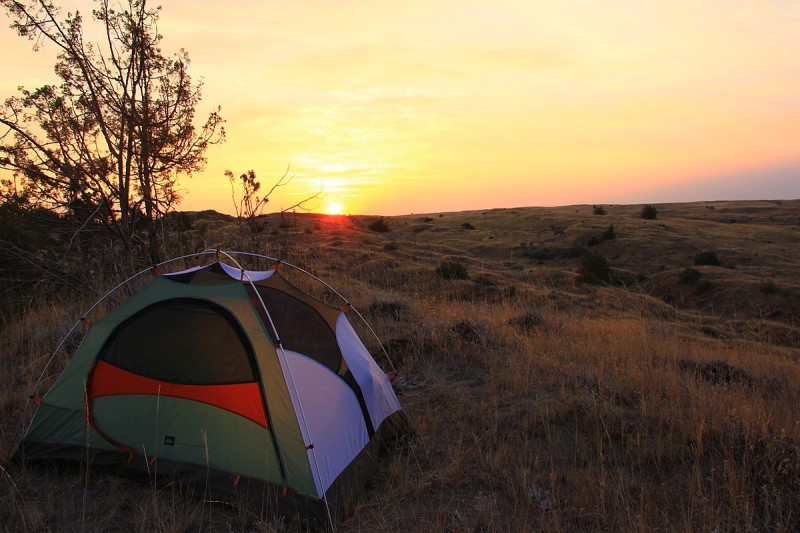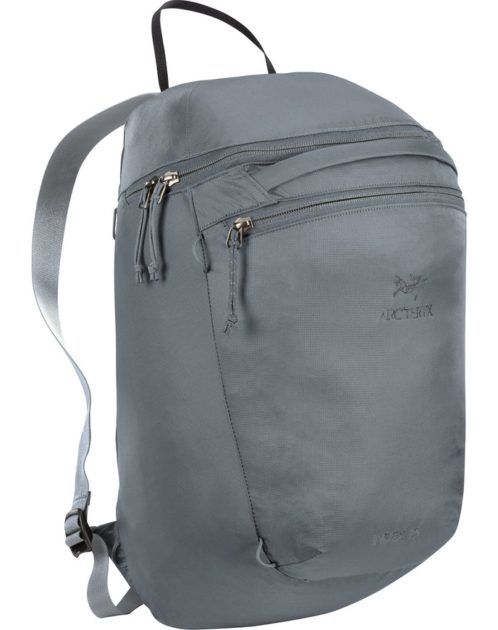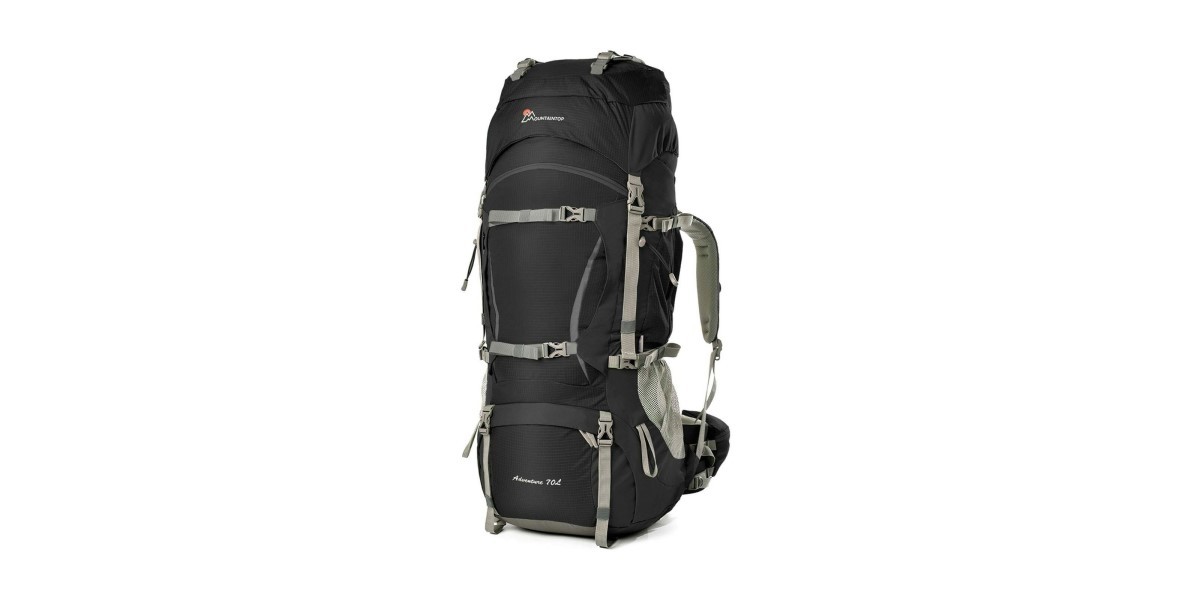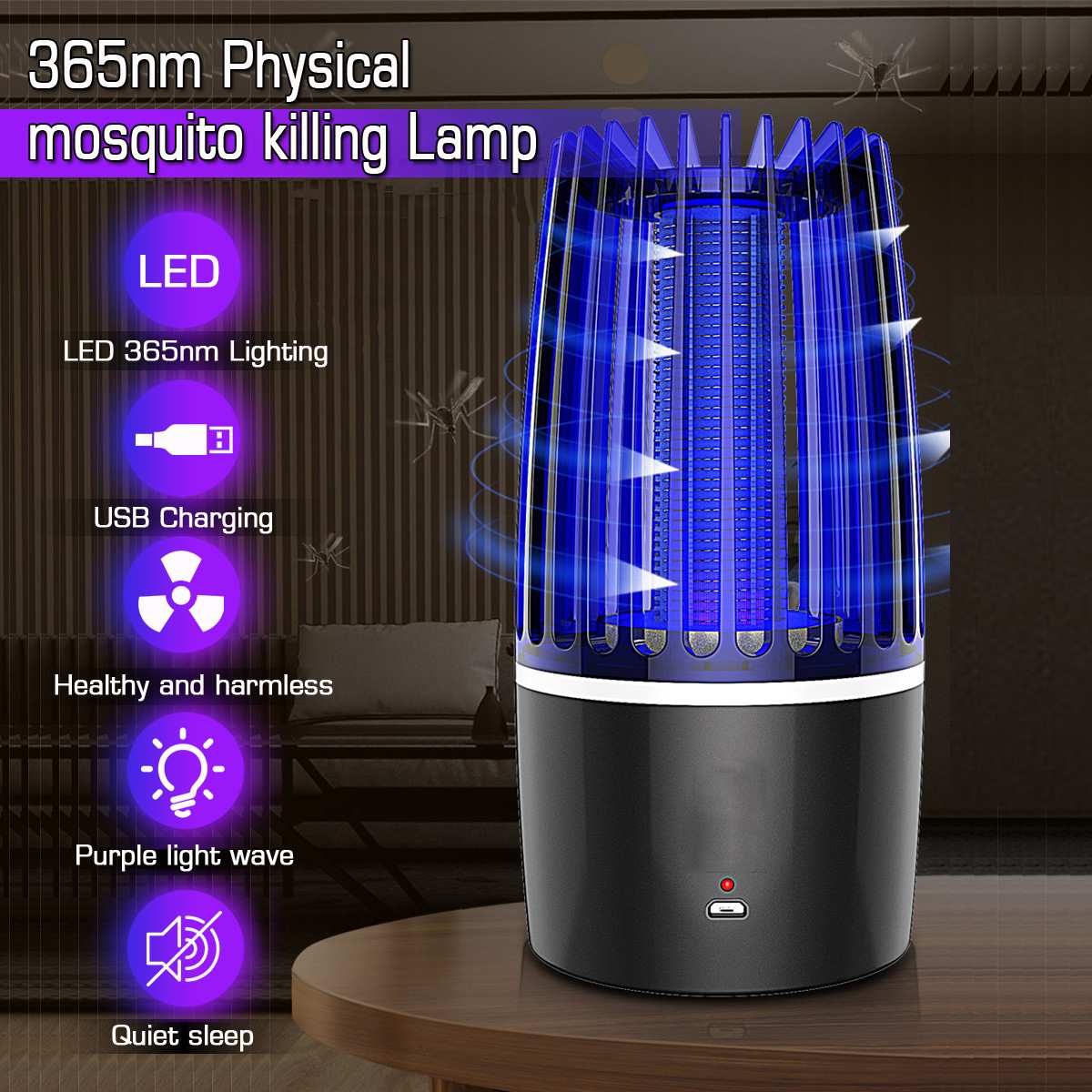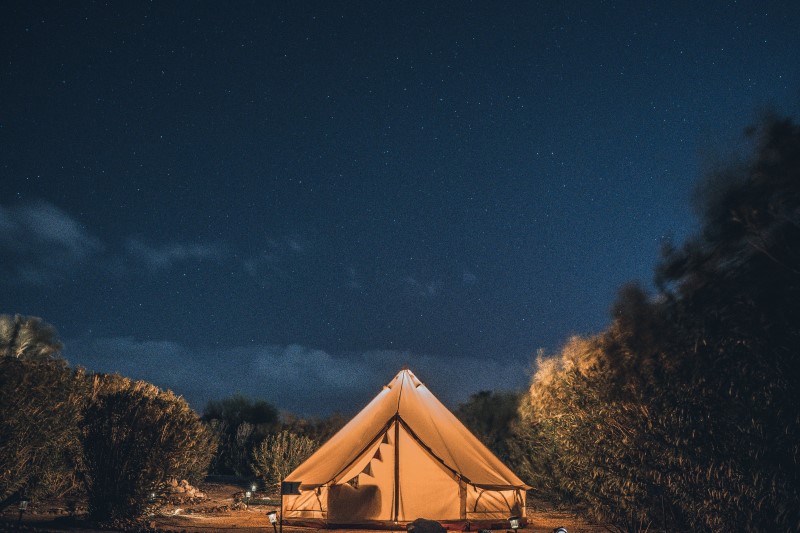
Summertime is the perfect opportunity to get outdoors and enjoy nature. However, when the temperatures start to rise, sleeping in a traditional tent can become quite uncomfortable. This is why learning how to insulate a tent for AC can be so beneficial.
By taking a few simple steps, you can keep yourself cool and comfortable on your camping trip. The best part is, it does not matter what the temperature is outside! So if you’re looking for some tips on how to beat the heat, keep reading.
Table of Contents
- What Are The Benefits Of Insulating A Tent For AC?
- Types Of Tent Insulation And How They Work
- How To Insulate Your Tent For AC
- Where To Buy Insulation For Tents
- Tips For Keeping Your Insulation In Good Condition
- Tips For Using Your Insulated Tent In Hot Weather
- Final Thoughts
- Frequently Asked Questions About Insulating Tents For Air Conditioning
- Latest Posts
What Are The Benefits Of Insulating A Tent For AC?
When you insulate a tent for AC, it helps to keep the temperature inside more consistent and comfortable. This is especially helpful if temperatures outside are hot and humid during the day, but then drop significantly at night. Insulating a tent allows you to maintain a comfortable temperature inside no matter what the outside temperature is.
Another great benefit of insulating a tent for AC is that it can significantly reduce the amount of energy needed to keep the tent cool. This means that you can reduce your energy usage and reduce your environmental impact at the same time.
Types Of Tent Insulation And How They Work
There are several ways of insulating a tent for AC. It really depends on how much you want to spend. I will discuss the most popular options below. The first two options cost way more but all of the work is already done for you.
- An Insulated Inner Shell: This is a special layer of material that is placed inside the tent. It helps to trap the air and maintain constant temperatures. It also adds an extra layer of protection against the cold in the winter as well.
- A Tent Designed To Be Used With AC: Tents that are designed to be used with an AC unit can often provide the most efficient and reliable insulation.
- Reflective Sheeting: This is an inexpensive option that can help to reflect the heat away from the tent. It can block up to 60% of the sun’s heat and is usually easy to install.
- Insulated Floor Mats: Another popular option is insulated floor mats. These are usually made of foam and help to insulate the tent from the ground.
- Thermal Blankets: Thermal blankets are also a great way to insulate the tent. They can be placed over the tent walls to help keep the heat out and add an extra layer of protection.
- Plastic Sheeting: Plastic sheeting is another popular option for insulating a tent for AC. It can be used to cover the windows and walls to keep out the heat.
- Duct Tape: Duct tape can be used to seal up any gaps in the tent walls or floor. This will help to keep the heat out and make sure that the tent is well insulated.
Now that you know what your options are, it’s time to insulate your tent for AC.
How To Insulate Your Tent For AC
The first step in insulating your tent for AC is to purchase the materials that you need.
Use A Tent Designed For AC
If you have a tent that is designed to be used with an AC unit, then you’re already halfway there. Most of these tents come with a special inner shell that will help to keep the temperatures inside more consistent and comfortable. There are a few larger options available but not a lot to choose from for smaller tents.
Use An Insulated Inner Tent Shell
If you don’t have a tent that is designed for AC, then you can use an insulated inner tent shell. This will provide extra protection against the outside temperatures. It should be easy to install and can help to keep the temperatures inside more consistent and comfortable. I will discuss one of these shells more below.
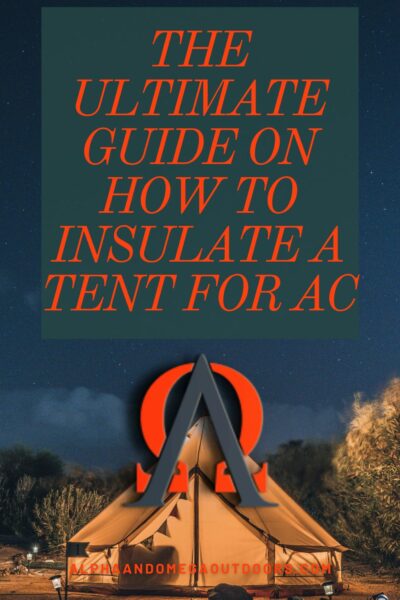
DIY Steps To Insulate A Tent For AC
Time needed: 45 minutes
For those of us that do not want to spend a fortune or like to do things ourselves, there are some DIY steps that you can take to insulate your tent for AC.
- Insulate Your Tent Floor For AC
The first step is to insulate your tent floor. Make sure you use a tarp or footprint on the ground for your tent. Then you can add an extra layer of insulation on the inside floor of your tent. You can do this by using an insulated floor mat or by using a thermal blanket. Both of these options will help to keep the heat from coming in from the bottom of the tent.
- Cover Your Tent With A Reflective Tarp
Next, you should cover your tent with a reflective tarp. The reflective material will help to reflect the heat away from your tent and keep the inside temperatures more consistent. You can buy these tarps from most camping stores and they are usually pretty inexpensive.
- Insulate The Inside Walls Of The Tent
You should insulate the inside walls of your tent. This can be done with plastic sheeting or a thermal blanket. Both options will help to keep the heat from coming in from the outside. Make sure you use enough insulation that it completely covers all of the walls and windows of your tent.
- Seal Any Gaps With Duct Tape
Finally, you should seal any gaps with duct tape. This will ensure that no heat gets in from the cracks and seams of your tent. This will also help to keep the inside temperature consistent and comfortable.
Once you have followed these steps, your tent should be well insulated for AC. Make sure to check the insulation regularly and replace it if needed. This will help to keep your tent cool and comfortable for years to come. Good luck!
Where To Buy Insulation For Tents
Insulated Inner Tent Shell
There are a few options available, but they are expensive. One that I found is the Crua Culla Cocoon which can be put inside any tent that it will fit in. Crua also sells a combo that includes a tent and a cocoon.
DIY Materials
For those who want to insulate their tent without spending too much money, you can find thermal blankets and plastic sheeting at most home improvement stores or outdoor stores. You can also pick up some duct tape for sealing any gaps.
Tips For Keeping Your Insulation In Good Condition

When insulating your tent for AC, it is important to make sure that you keep the insulation in good condition. Over time, the insulation can start to wear down and not provide the same level of protection. Check your insulation regularly for any tears or rips and replace it if needed. Also, make sure to keep your insulation from getting wet or dirty as this can reduce its effectiveness.
It is also important to make sure that your tent is kept clean and free from any debris. This will help to keep the insulation in good condition for longer.
Finally, never leave your tent in direct sunlight for too long as this can damage the insulation and reduce its ability to insulate.
Tips For Using Your Insulated Tent In Hot Weather
If you are using your insulated tent in hot weather, there are a few tips that you should follow. First, make sure to open up the windows of your tent to allow air flow. This will help to reduce the amount of heat that builds up inside the tent. Also, make sure to use a fan or other cooling system to help circulate the air inside your tent.
Finally, make sure that you are hydrated and drink plenty of water throughout the day. This will help to keep your body temperature regulated and you cool in hot weather.
With these tips, your insulated tent should be able to keep you comfortable in hot weather. Have fun and stay safe!
Final Thoughts
Insulating your tent for AC is a great way to keep the inside temperatures comfortable and consistent. It can make camping more enjoyable and help you stay cool in warm weather. Make sure to follow all of the steps outlined above and check your insulation regularly for any wear and tear. With the right materials and care, your insulated tent should be able to keep you comfortable in any weather. Good luck!
Frequently Asked Questions About Insulating Tents For Air Conditioning
How do I keep my tent cool with AC on?
The best way to keep your tent cool with AC on is by making sure it is properly insulated. This can be done with plastic sheeting or thermal blankets as well as with a Crua Cocoon or other insulated inner tent shell. Make sure to also use duct tape to seal any gaps and openings in your tent to prevent heat from getting in. Finally, use a fan or other cooling system to help circulate the air inside the tent and stay hydrated to keep your body temperature regulated.
What materials are best for insulating a tent?
The best materials for insulating a tent are plastic sheeting or thermal blankets as well as an insulated inner tent shell such as the Crua Cocoon. You can also use duct tape to seal any gaps and openings to prevent heat from getting into the tent.
Can I insulate my tent for both AC and cold weather?
Yes, you can insulate your tent for both AC and cold weather. The same materials that are used to insulate for AC (plastic sheeting, thermal blankets and an insulated inner tent shell) can also be used to insulate for cold weather. Make sure to use more insulation for cold weather and make sure to use duct tape to seal any gaps or openings.
How can I make my tent more insulated?
In addition to using plastic sheeting, thermal blankets, and an insulated inner tent shell, you can also use duct tape to seal any gaps or openings in your tent to make it more insulated.
Can you run AC in a tent?
Yes, you can run AC in a tent as long as your tent has been properly insulated. Make sure to use plastic sheeting or thermal blankets as well as an insulated inner tent shell such as the Crua Cocoon. You should also use duct tape to seal any gaps or openings in your tent to prevent heat from getting in.
How do you insulate a tent from the inside?
The best way to insulate a tent from the inside is by using plastic sheeting or thermal blankets as well as an insulated inner tent shell such as the Crua Cocoon. Make sure to use duct tape to seal any gaps or openings in your tent and also use a fan or other cooling system to help circulate the air inside.
Latest Posts
- Hopping into Adventure: My Experience of Rabbit Hunting in Wyoming
- The Guide to Discovering Black Bears in Wyoming: Where to Search for These Mighty Creatures
- Best Ways to Start Spearfishing – Is Scuba Diving or Freediving the Best Way?
- Discovering the Art of Mule Deer Hunting: Tips and Tricks for Finding Your Next Trophy Buck
- Surviving the Wild: Mastering the Art of Building a Fire in the Mountains

